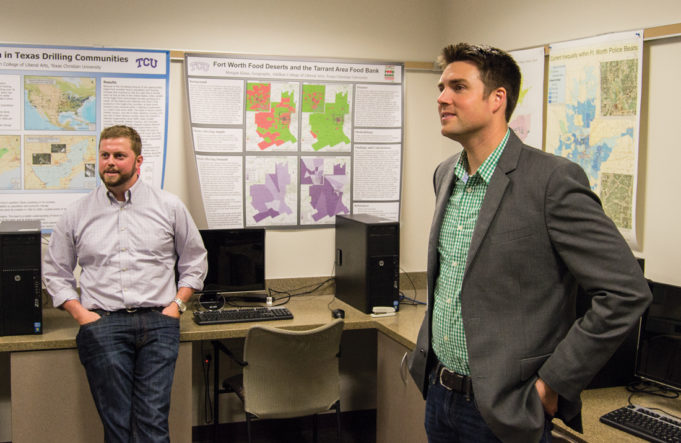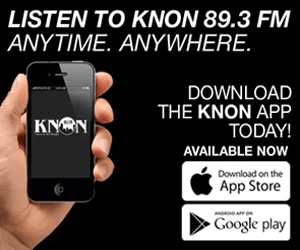TCU’s professors frequently conduct research that would be of value to the community. Mapping demographic trends, predicting child abuse rates, and measuring the potential impact of smoking bans in Fort Worth are just a few of the more recent studies undertaken by the private university’s faculty.
Until recently, those findings would have been published in academic journals, effectively remaining out of reach for much of the public. Last year, TCU professor Kyle Walker became director of a new program designed to change that. The TCU Center for Urban Studies, an initiative of the university’s AddRan College of Liberal Arts, is tasked with engaging Fort Worth’s communities on critical urban issues.
The five-year-old group’s main, but by no means only, outlet to the public is its website (urbanstudies.tcu.edu), which links to articles published by TCU faculty on local topics ranging from the migration of minorities from Fort Worth’s downtown to the suburbs to the impact of student debt on home ownership and an interactive map that tracks development hotspots in Fort Worth.
Already, the research is helping community leaders in East Lancaster Avenue better understand the needs of area residents and aiding Tarrant County Food Bank directors’ efforts in mapping out areas of low food access known as food deserts.
Much of the information used in the research is available because Fort Worth is a recent convert to the open data movement, Walker said. Other cities participating in the volunteer effort include Boston, Chicago, San Francisco, and New York City.
The movement, Walker said, has been a boon to academic groups (like UTA’s Institute for Urban Studies and Rice University’s Kinder Institute for Urban Research) as municipalities make complex public records available to the public, usually online. Having access to public data creates new opportunities for private individuals and professional to find trends or other finding that could be of public interest.
For Fort Worthians, that information comes via data.fortworth.gov. While the gesture appears altruistic, crunching those numbers is no easy task.
“These open data sets require advanced skills” to interpret, Walker said.
While most of the Center’s work takes place on campus, several of the group’s projects directly engage with Fort Worth nonprofits and community groups. After receiving a call from a director with the development group Vision East Lancaster three years ago, TCU professor and Center director Sean Crotty learned that business and community leaders in the area were frustrated about decades of stagnant development and wanted advice.
What they didn’t want was another study by the city that led nowhere, Crotty recalled.
Acting as an advisor, Crotty set up an online survey to ask area residents what changes they would like to see in their community. Not everyone in the mixed-income area had internet access, which required that many residents be polled in person. The survey revealed a lack of basic services.
The streets in and around East Lancaster “were too dark, and people said they didn’t feel safe,” Crotty said.
Another concern highlighted was the lack of safe afterschool spaces for children. That findings prompted residents to request City Council include an East Lancaster public library in the 2014 bond package. That library is now scheduled for construction.
Vision East Lancaster Chairwoman Wanda Conlin said Crotty and the Center continue to be an important part of her group’s efforts.
“The library will be larger than we first thought” and will go into the design stage next year, Conlin said in an e-mail. “Improvements are happening along East Lancaster Avenue. We have new LED streetlights, and the [street] poles are being dressed up with glossy black paint. Three intersections are being upgraded with new signal lights, and crosswalk signals are being made more pedestrian-friendly.”
One project overseen by the Center may one day lower incidents of child abuse in Fort Worth by providing law enforcement with maps that predict where those crimes will occur. TCU professor and Center director Michael Bachmann is partnering with Cook Children’s, a pediatric hospital, to test a new data analysis method developed at Rutgers University called Risk Terrain Modeling.
The complex algorithm, as programmed by Bachmann, compares child abuse reports with several known risk factors (domestic abuse, poverty, and child runaways being the most critical) to map out where incidents of child abuse are likely to occur in the future, Bachmann said. The maps can provide predictions for areas as small as 400-by-400-square-feet.
While still in the testing phase, Bachmann was able to use 2013 data to predict 2014 records with 98 percent accuracy. Every indication so far, Bachmann said, is that the new method of crime prediction is far more precise than previous models. Bachmann plans to use Risk Terrain Modeling to predict Fort Worth child abuse hotspots in the near future. His research may soon be published in the journal Child Abuse and Neglect.
The only problem for the busy professor and researcher has been the uptick in the number of groups wanting to learn about his research. He has a meeting with the District of Columbia Chief of Police scheduled soon, he said, and he was recently asked to speak to the Netherlands-based European Society to Fight Child Abuse.
With all the resources that come from several faculty members, students, and an online presence, the only thing missing for the new venture is better public awareness of the group, Walker said.
“North Texas is estimated to reach a population of 10 million by 2050,” Crotty said. “That’s more than doubling the population. There are all sorts of questions about where those people will go. That’s something we can shed light on.”
Walker says his group is uniquely suited to take complex sets of public data and make is relevant to the public. He plans to expand the use of TCU students in the research soon, providing them with unique skill such as how to use the “latest interactive mapping software, analyze data, take surveys, and conduct interviews.”
“TCU is an urban university,” he said. “We’re right in the middle of this city, and we want to be of service to it.”












